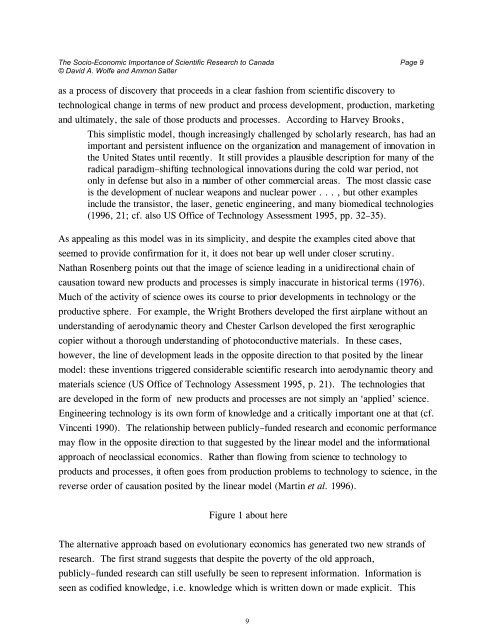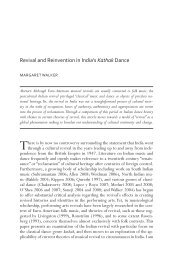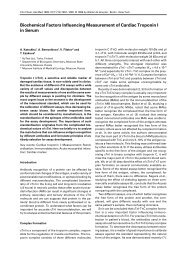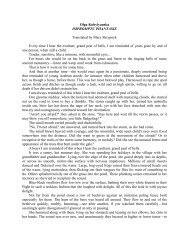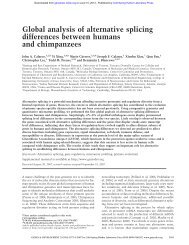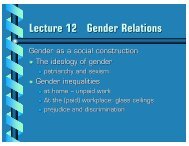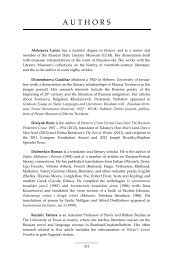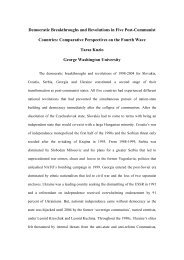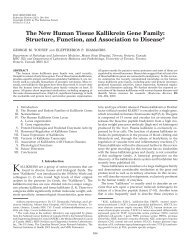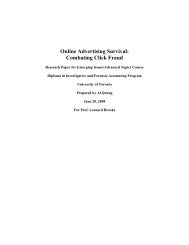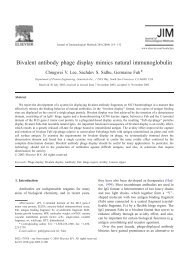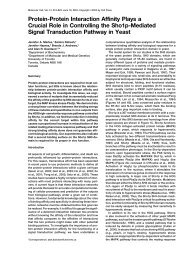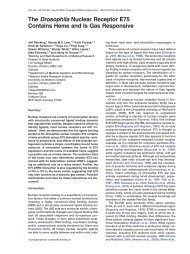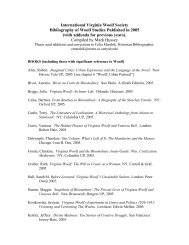The Socio-Economic Importance of Scientific Research To Canada
The Socio-Economic Importance of Scientific Research To Canada
The Socio-Economic Importance of Scientific Research To Canada
Create successful ePaper yourself
Turn your PDF publications into a flip-book with our unique Google optimized e-Paper software.
<strong>The</strong> <strong>Socio</strong>-<strong>Economic</strong> <strong>Importance</strong> <strong>of</strong> <strong>Scientific</strong> <strong>Research</strong> to <strong>Canada</strong> Page 9© David A. Wolfe and Ammon Salteras a process <strong>of</strong> discovery that proceeds in a clear fashion from scientific discovery totechnological change in terms <strong>of</strong> new product and process development, production, marketingand ultimately, the sale <strong>of</strong> those products and processes. According to Harvey Brooks,This simplistic model, though increasingly challenged by scholarly research, has had animportant and persistent influence on the organization and management <strong>of</strong> innovation inthe United States until recently. It still provides a plausible description for many <strong>of</strong> theradical paradigm–shifting technological innovations during the cold war period, notonly in defense but also in a number <strong>of</strong> other commercial areas. <strong>The</strong> most classic caseis the development <strong>of</strong> nuclear weapons and nuclear power . . . , but other examplesinclude the transistor, the laser, genetic engineering, and many biomedical technologies(1996, 21; cf. also US Office <strong>of</strong> Technology Assessment 1995, pp. 32–35).As appealing as this model was in its simplicity, and despite the examples cited above thatseemed to provide confirmation for it, it does not bear up well under closer scrutiny.Nathan Rosenberg points out that the image <strong>of</strong> science leading in a unidirectional chain <strong>of</strong>causation toward new products and processes is simply inaccurate in historical terms (1976).Much <strong>of</strong> the activity <strong>of</strong> science owes its course to prior developments in technology or theproductive sphere. For example, the Wright Brothers developed the first airplane without anunderstanding <strong>of</strong> aerodynamic theory and Chester Carlson developed the first xerographiccopier without a thorough understanding <strong>of</strong> photoconductive materials. In these cases,however, the line <strong>of</strong> development leads in the opposite direction to that posited by the linearmodel: these inventions triggered considerable scientific research into aerodynamic theory andmaterials science (US Office <strong>of</strong> Technology Assessment 1995, p. 21). <strong>The</strong> technologies thatare developed in the form <strong>of</strong> new products and processes are not simply an ‘applied’ science.Engineering technology is its own form <strong>of</strong> knowledge and a critically important one at that (cf.Vincenti 1990). <strong>The</strong> relationship between publicly–funded research and economic performancemay flow in the opposite direction to that suggested by the linear model and the informationalapproach <strong>of</strong> neoclassical economics. Rather than flowing from science to technology toproducts and processes, it <strong>of</strong>ten goes from production problems to technology to science, in thereverse order <strong>of</strong> causation posited by the linear model (Martin et al. 1996).Figure 1 about here<strong>The</strong> alternative approach based on evolutionary economics has generated two new strands <strong>of</strong>research. <strong>The</strong> first strand suggests that despite the poverty <strong>of</strong> the old approach,publicly–funded research can still usefully be seen to represent information. Information isseen as codified knowledge, i.e. knowledge which is written down or made explicit. This9


